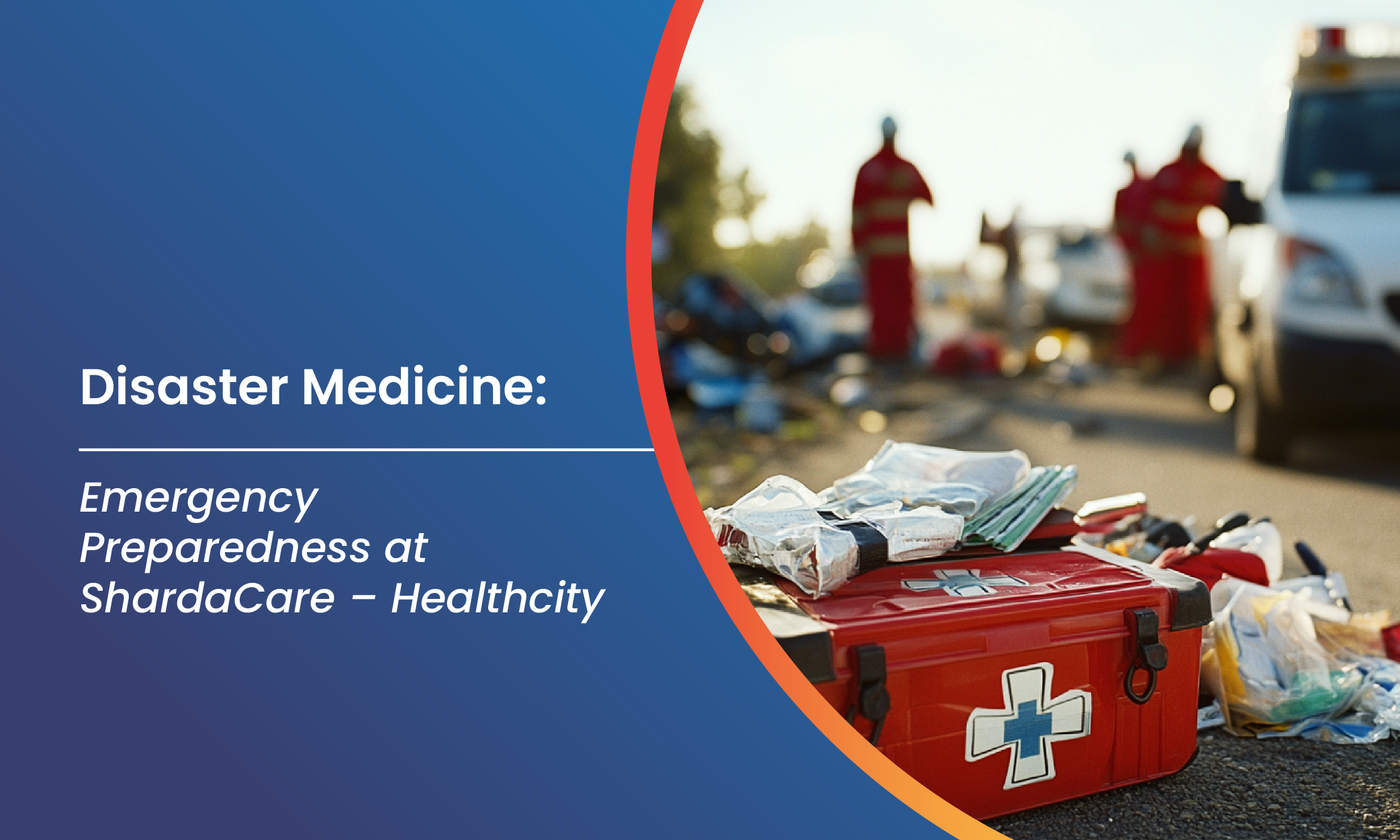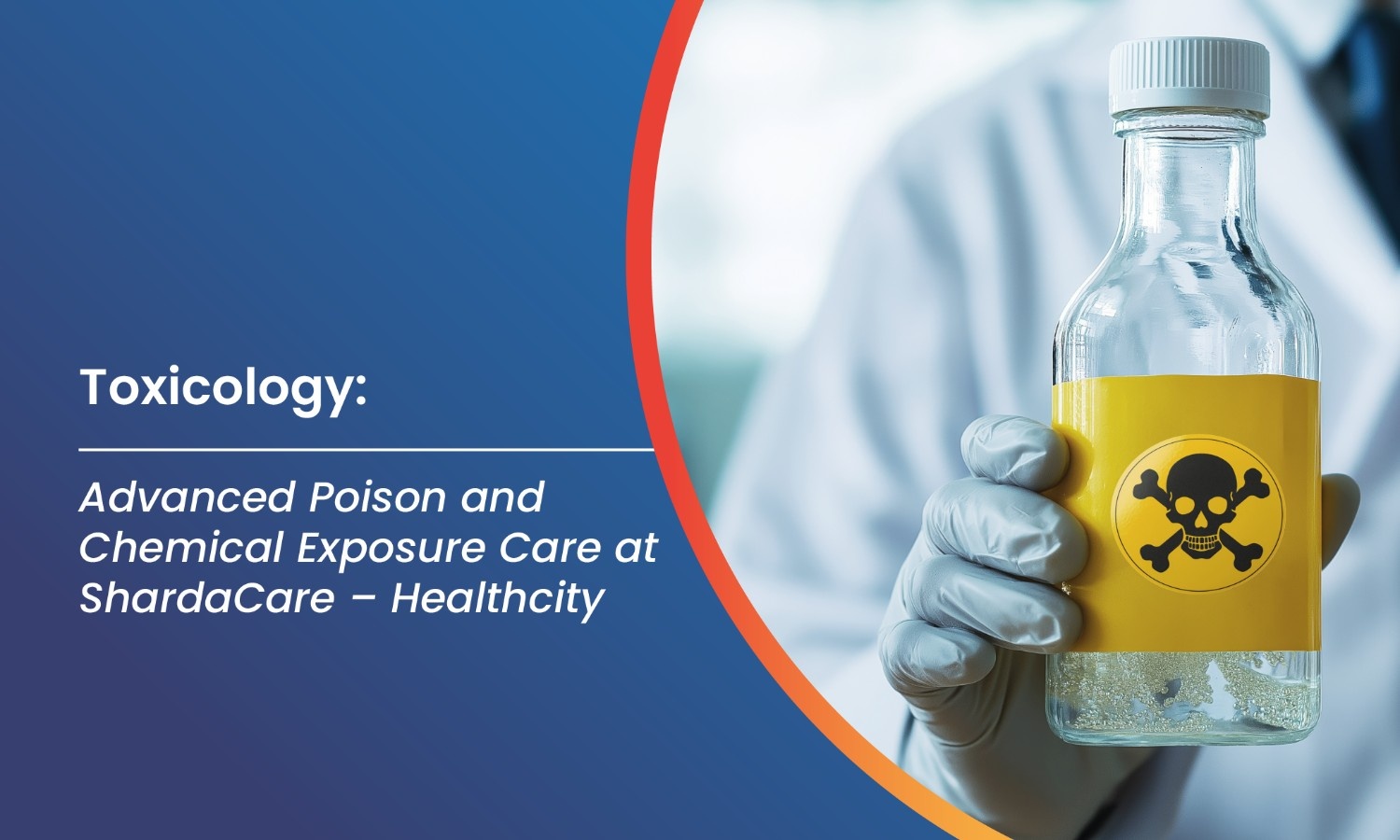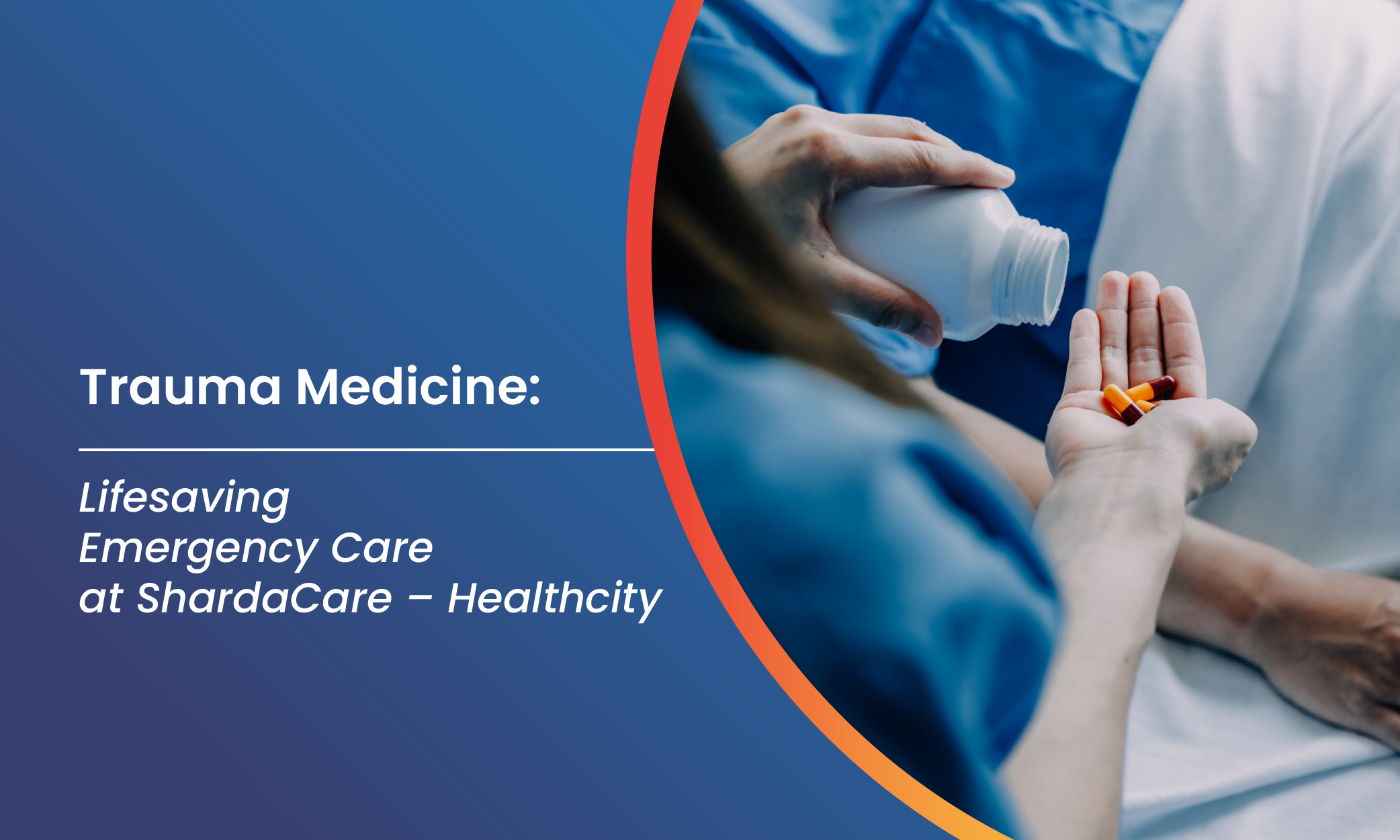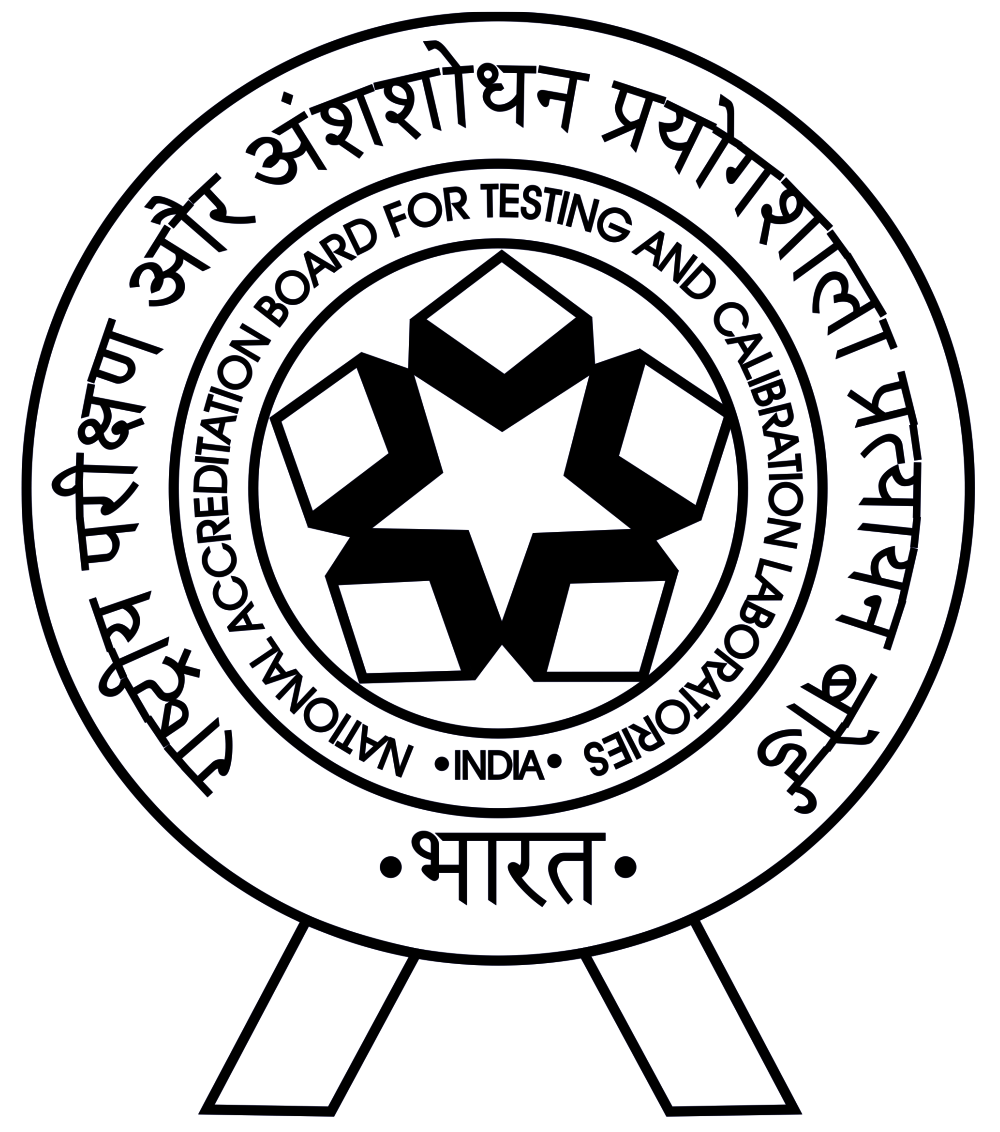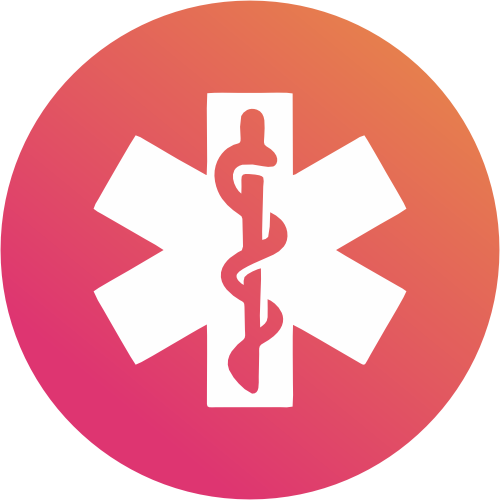
Emergency Medicine
Emergency & Trauma Care Services at ShardaCare – Healthcity
At ShardaCare - Healthcity, our Emergency & Trauma Care Department is a testament to our unwavering commitment to providing the highest levels of Skill, Expertise, and Infrastructure. We understand that Medical Emergencies can strike at any moment, and our protocols are designed to respond Swiftly and Effectively, delivering outcomes that are on par with the best in the world. We leverage our multi-specialty prowess to deliver the Crucial Edge in Emergency Care, ensuring that our patients receive the most comprehensive and advanced treatment possible.
The Emergency & Trauma Care Center at ShardaCare - Healthcity guarantees easy and swift access to the Finest Trauma Surgeons, Capable of performing cutting-edge procedures. Our team of highly skilled Cardiologists, Neurologists, Neurosurgeons, and Trauma specialists are on standby around the clock, ready to provide expert care during any Medical Emergency.
At our Emergency & Trauma Care Center, patients can expect to receive globally benchmarked medical assistance, as our dedicated team's singular focus is to help them get better, faster. We pride ourselves on establishing ShardaCare - Healthcity as one of the premier Emergency and Trauma Centers in the region.
Our state-of-the-art facilities are equipped with the latest technologies and resources, enabling our medical professionals to deliver prompt and effective care in critical situations. From Trauma management to Cardiac Emergencies, our Interdisciplinary team works seamlessly to address even the most complex cases with precision and efficiency.
At ShardaCare - Healthcity, we understand that every second counts in an emergency, and our highly trained staff is prepared to Triage and Stabilize Patients, ensuring they receive the appropriate level of care without delay. Our commitment to continuous improvement, ongoing training, and adherence to the highest standards of emergency medical care sets us apart as a leading provider of emergency services.
Looking for an Expert
ShardaCare - Healthcity is home to some of the eminent Doctors in the world.
Book an Appointment









